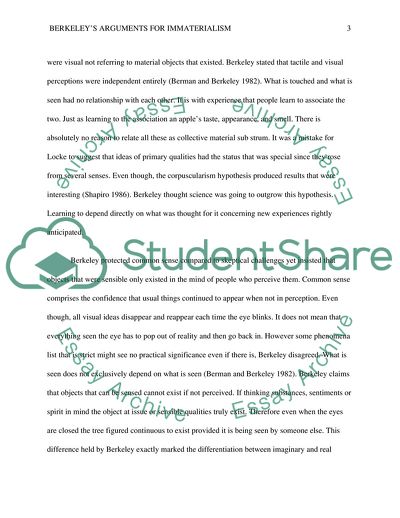Cite this document
(Berkeleys Arguments for Immaterialism Essay Example | Topics and Well Written Essays - 2250 words, n.d.)
Berkeleys Arguments for Immaterialism Essay Example | Topics and Well Written Essays - 2250 words. https://studentshare.org/philosophy/1874603-analyze-and-assess-at-least-one-of-berkeleys-arguments-for-immaterialism
Berkeleys Arguments for Immaterialism Essay Example | Topics and Well Written Essays - 2250 words. https://studentshare.org/philosophy/1874603-analyze-and-assess-at-least-one-of-berkeleys-arguments-for-immaterialism
(Berkeleys Arguments for Immaterialism Essay Example | Topics and Well Written Essays - 2250 Words)
Berkeleys Arguments for Immaterialism Essay Example | Topics and Well Written Essays - 2250 Words. https://studentshare.org/philosophy/1874603-analyze-and-assess-at-least-one-of-berkeleys-arguments-for-immaterialism.
Berkeleys Arguments for Immaterialism Essay Example | Topics and Well Written Essays - 2250 Words. https://studentshare.org/philosophy/1874603-analyze-and-assess-at-least-one-of-berkeleys-arguments-for-immaterialism.
“Berkeleys Arguments for Immaterialism Essay Example | Topics and Well Written Essays - 2250 Words”. https://studentshare.org/philosophy/1874603-analyze-and-assess-at-least-one-of-berkeleys-arguments-for-immaterialism.


